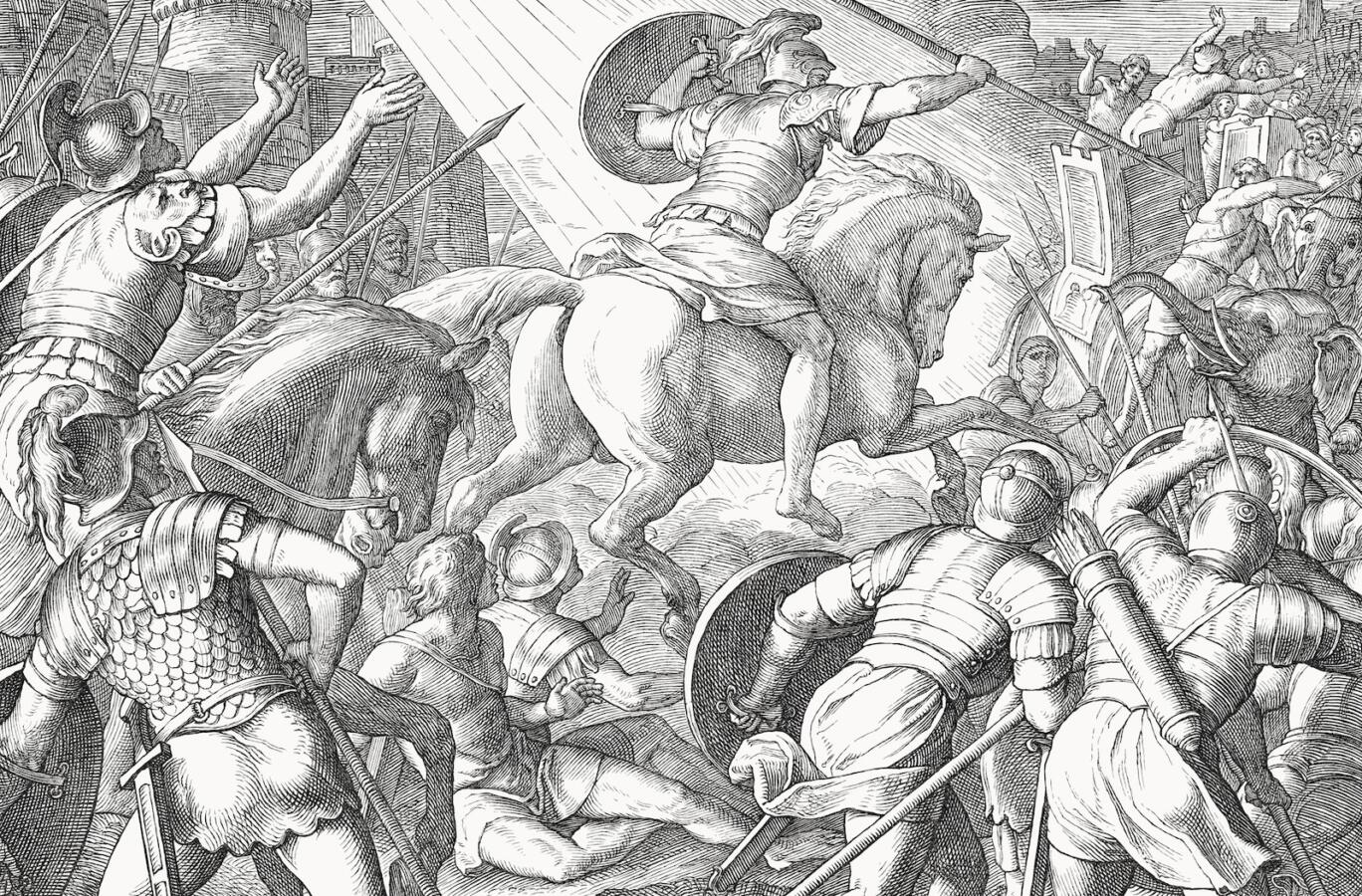Notwithstanding the story of the oil that burned for eight days when there was only enough for one, Hanukkah is, in fact, a war holiday. It commemorates events triggered by a clan of militant priests who took up arms and fought against a regime of religious oppression. These guerilla-priests, better known as the Maccabees, also attacked and killed fellow Jews who did not support the military effort to recover Jewish sovereignty.
Wars are often like that — an inflamed segment of the population lures and, in some cases, forces the nation to take up arms. Thus while wars can unite nations, they can also tear them apart. In that sense, almost every war is also a civil war. Which is why sustained war depends upon censorship, propaganda, threats and even terror to impose a dubious unity upon the complexity of individual viewpoints that thrive within a nation when it knows peace.
So it’s little surprise that Jewish tradition, a tradition formed primarily during a period of protracted and disarmed exile, is deeply torn, and even contradictory, in its thinking about war. The Bible reports that on the far side of the Sea of Reeds, after the charioteers of Pharaoh’s army had drowned in its waters, the Hebrews sang a hymn of victory that contained the words, “The Lord is a man of war.” Nearly two millennia later, the rabbis of the Talmud, the intellectual leaders of a people ravaged by two devastating defeats (in 70 CE and 135 CE) that had left Jerusalem in ruins, wondered whether that was still true. Their answer: “God’s might is God’s self-restraint, in God’s willingness to show patience toward the wicked, we discern God’s heroism.”
In the Bible, Abraham, Moses, Joshua, Gideon, Deborah, Samson and others all engaged in warfare. But the iconic warrior of the Bible is King David, who tradition deems the ancestor of the messiah, a king who will usher in an era of enduring peace. A poet and musician whose finesse with the lyre could soothe the soul of a mad king who sought to kill him, David is hailed by tradition as composer of many of the psalms. He seems to have been a religious virtuoso, a commander-in-chief who could accept the rebuke of a prophet who called him out for being a murderer and adulterer. And yet despite his yearning to build the Temple, David surrendered to God’s edict: “You have shed much blood and fought great wars; therefore you shall not build My house.”

Help us keep Jewish knowledge accessible to millions of people around the world.
Your donation to My Jewish Learning fuels endless journeys of Jewish discovery. With your help, My Jewish Learning can continue to provide nonstop opportunities for learning, connection and growth.
Can war bring about peace? The Book of Judges seems to imply that a decisive military victory could yield 40 years of non-belligerence, which isn’t bad if you’re living in a war zone. The space between the drumbeats of battle ought not be spurned. Just as Shabbat offers a weekly respite from the struggles of existence, so do ceasefires and peace treaties lift the darkness and despair of never-ending combat.
But is Shabbat sufficient to satisfy the human hunger for peace or to accommodate humanity to living with war as a permanent feature of our (probably) impermanent species? That seems doubtful considering how those who know war best have ardently sought its end. I love the romantic passion that must have moved Woodrow Wilson to describe the war that broke out in Europe in 1914 — and into which, against serious opposition, he drew America — as the “war to end all war.” I heard that same hunger for peace in the voice of Israeli singer Yoram Gaon, who sadly crooned during the Yom Kippur War of 1973: “I promise you, my young daughter, this will be the last war.” And I discern it in the weary words of the Israeli warrior-poet Yehuda Amichai:
Not the peace of a cease-fire,
not even the vision of the wolf and the lamb,
but rather
as in the heart when the excitement is over
and you can talk only about a great weariness.
I know that I know how to kill,
that makes me an adult.
And my son plays with a toy gun that knows
how to open and close its eyes and say Mama.
A peace
without the big noise of beating swords into ploughshares,
without words, without
the thud of the heavy rubber stamp: let it be
light, floating, like lazy white foam.
A little rest for the wounds—
who speaks of healing?
(And the howl of the orphans is passed from one generation
to the next, as in a relay race:
the baton never falls.)Let it come
like wildflowers,
suddenly, because the field
must have it: wildpeace.
The hunger for peace notwithstanding, war has its own allure, follows its own logic and makes its own demands. Warriors can make peace, as we saw vividly in 1993 when Israel’s prime minister shook hands with the head of the Palestine Liberation Organization on the White House lawn. And peacemakers can fall victim to war, as we saw when an assassin’s bullet killed that same prime minister at a peace rally in Tel Aviv. And now, there seems no path out of this horrific war that broke out on October 7th, no credible vision of its end or of what might come after.
And yet, we have just celebrated Hanukkah, holiday of miracles, holiday of light. So yes, let it come suddenly, simply because the field must have it. Let it break out like a rainbow after a hurricane, like the first word of a mute child, like a laugh or a burp, a wild, indisputable peace.
This article initially appeared in My Jewish Learning’s Shabbat newsletter Recharge on Dec. 16, 2023. To sign up to receive Recharge each week in your inbox, click here.



